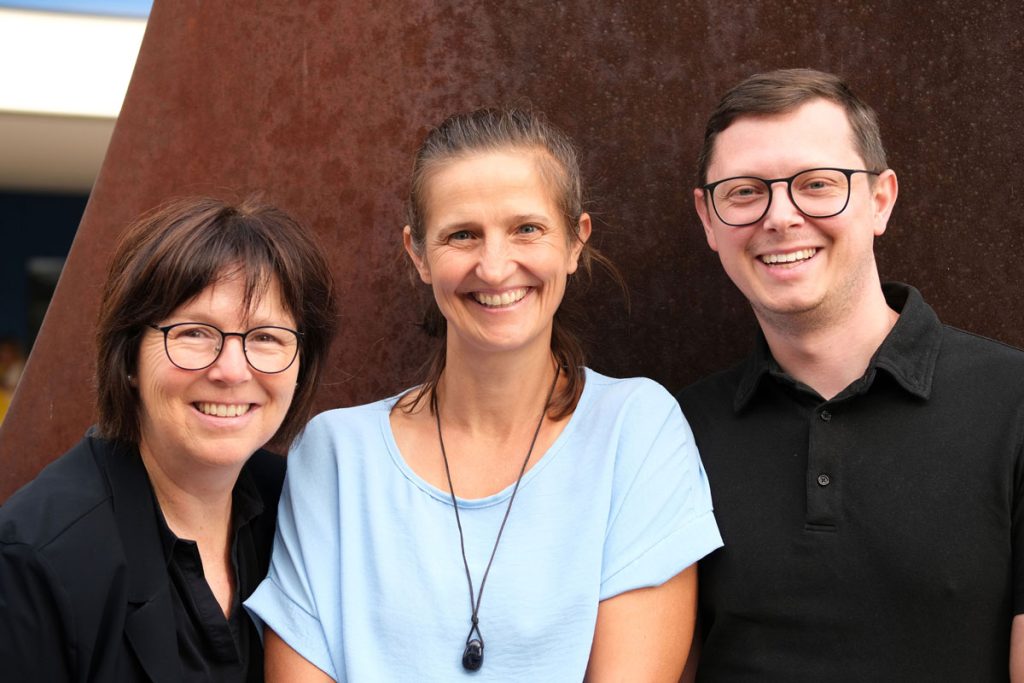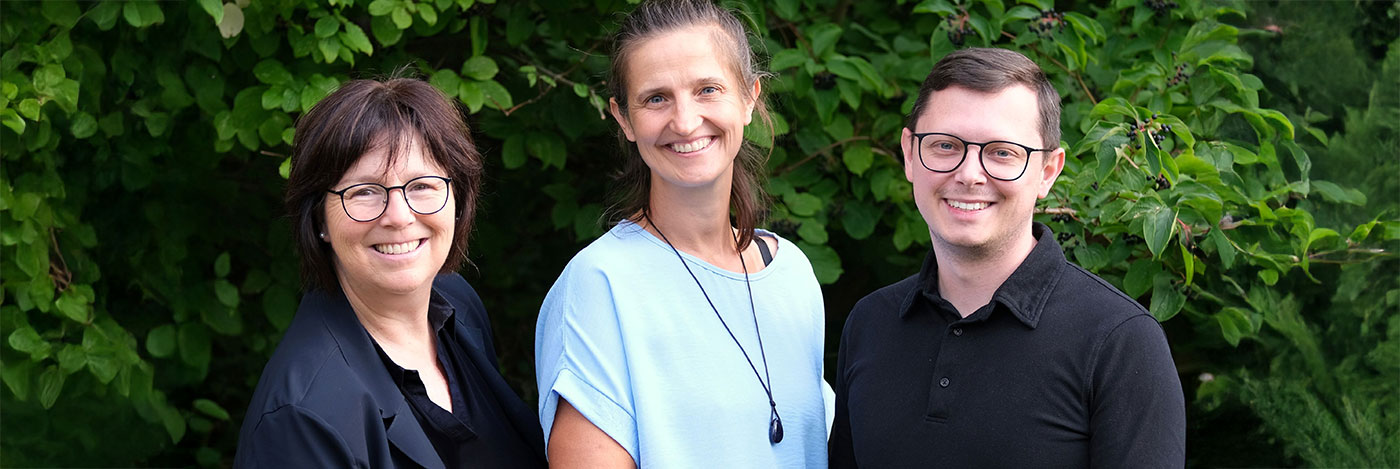Karin Jacobs and Franziska Lautenschläger, professors of physics at Saarland University, along with Dr. Oskar Staufer, Research Group leader at INM – Leibniz Institute for New Materials, have been appointed Fellows of the Max Planck School Matter to Life.
The Max Planck School “Matter to Life” is one of three international doctoral schools of the Max Planck Schools – a joint graduate programme of German universities and non-university research institutions. Ambitious young talents from all over the world can start their research careers here in a funded doctoral programme. They are supervised by the ‘Fellows’ – outstanding experts in their disciplines who are particularly committed to the training of international doctoral students.
“Matter to Life” sees itself as an international and interdisciplinary network. Its aim is to train the best doctoral students worldwide and attract them to a research career in Germany,’ explains Karin Jacobs, who has been involved from the beginning and has been appointed a Fellow twice since 2018. ‘As fellows, we offer courses and workshops within the graduate school, and above all, we supervise doctoral students who have decided to pursue a research project in one of our research groups in Saarbrücken,’ says the professor of experimental physics at Saarland University.
New additions to the Saarbrücken site are the working groups of Franziska Lautenschläger, Professor of Experimental Biophysics, and Dr Oskar Staufer, head of the Research Group Immuno Materials at INM – Leibniz Institute for New Materials. All Saarbrücken fellows are also members of the University’s Centre for Biophysics, which is headed by Franziska Lautenschläger. She studies the structure of cells and investigates how their biophysical properties – such as their stiffness – influence their behaviour. Lautenschläger is thus working to answer questions that are highly relevant to cancer research and immunotherapies, such as whether metastasis can be controlled via cell mechanics. Students in her working group can thus acquire not only biophysical knowledge, but also skills in microscopy and cell mechanics.
Oskar Staufer’s research group is developing novel biomaterials to better understand and specifically control immune processes: for example, artificial lymph nodes that make it possible to study the activation of immune cells outside the body and to produce more powerful immune cells for cancer therapies in the future.
His group’s work is highly interdisciplinary, combining biophysics, biomaterials, and immunology. The research thus fits seamlessly into the Matter to Life focus area and provides students with practical knowledge of how artificial constructs can be used to regulate molecular mechanisms with therapeutic relevance. Karin Jacobs’ working group investigates the Physics of soft matter at interfaces, with a focus on bioadhesion.
The aim is to understand how cells or bacteria attach themselves to interfaces – and how these interactions can be influenced by targeted modification, for example through structuring. Students work with modern methods of surface analysis, such as atomic force microscopy and single-cell force spectroscopy, and learn to combine biological questions with physical approaches.
The Max Planck School ‘Matter to Life’ takes an interdisciplinary approach to the question ‘What is life?’ and covers topics such as molecular systems chemistry, biological physics, bioengineering and synthetic biology. Students who have passed the admission process enter the programme after completing their bachelor’s degree (in Chemistry, Biochemistry, Physics, Bioengineering or related subjects). They then complete a five-year fast-track programme from master’s to doctorate. The programme – including tuition fees and living expenses – is funded by the Dieter Schwarz Foundation.
More Information: https://mattertolife.maxplanckschools.org/

Physics professors Karin Jacobs and Franziska Lautenschläger, as well as Oskar Staufer, research assistant at INM
Photo: © UdS/Gerhild Sieber

